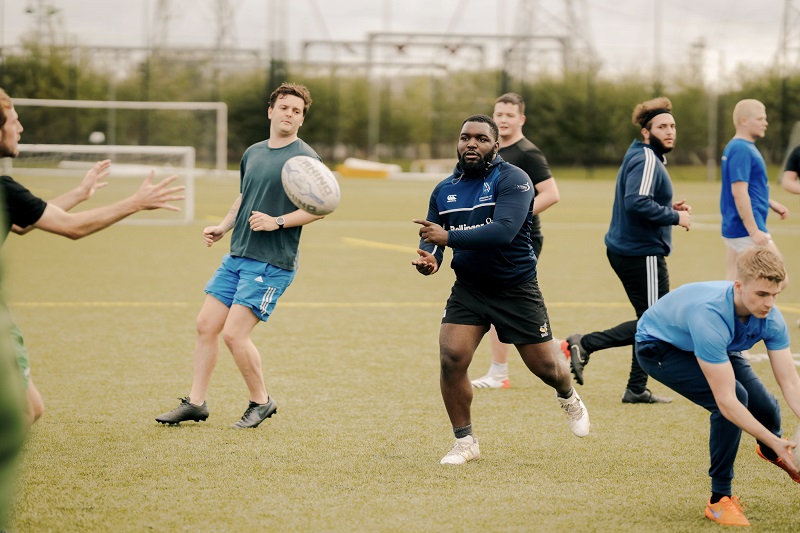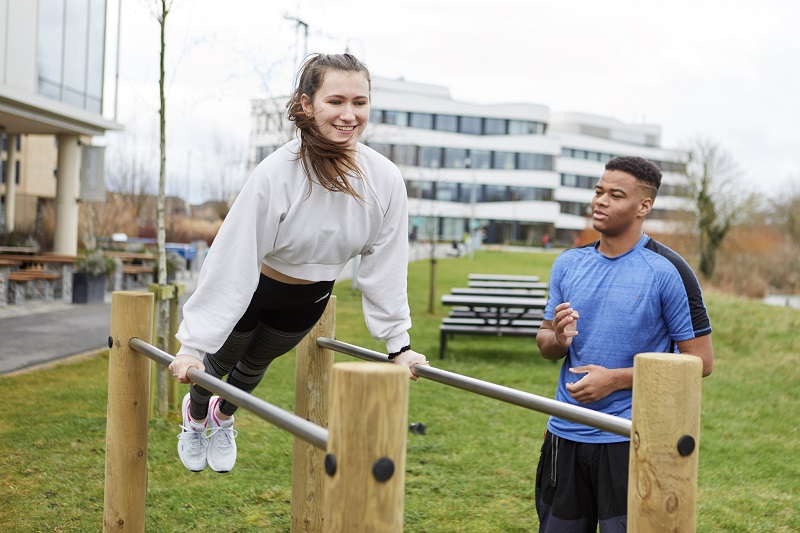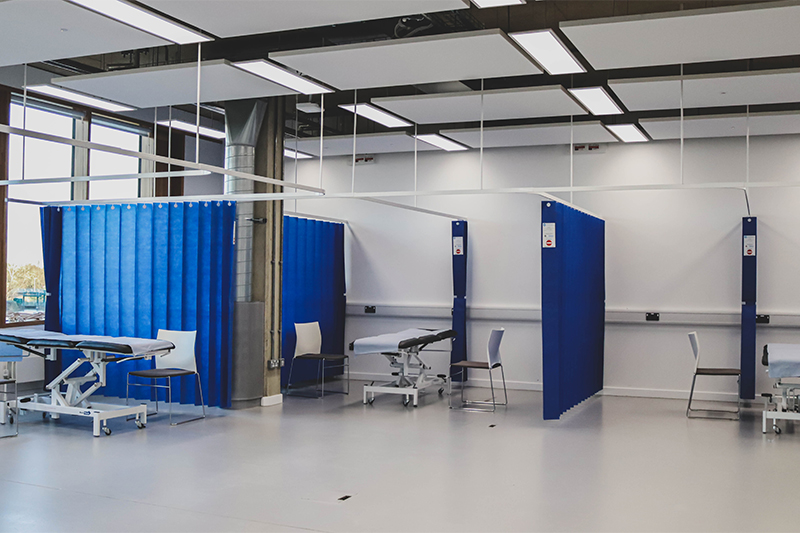
Brendon Skinner
Senior Lecturer in Sport Rehabilitation and Injury
Sport Rehabilitation and Conditioning BSc (Hons)
DiscoverGet in touch with us as we may be able to offer you a place for September 2024 through Clearing.
UCAS Code
BSc: C630
BSc with Foundation: C631
Level
UndergraduateUG
BSc (Hons)Duration
Full Time: 3 years
Full Time Foundation: 4 years
Part Time: 4-6 years
Starting
September
CCC at A Level or,
DMM at BTEC
Fees UK 24/25
Full Time: £9,250
Part Time: £1,540 (per 20 credits)
Integrated Foundation Year: £9,250
Fees International 24/25
Full Time: £15,200
Integrated Foundation Year: £15,200
Location
For questions regarding study and admissions please contact us:
The University of Northampton’s Sport Rehabilitation and Conditioning BSc course is aimed at students who are committed to working with the public, athletes and populations of all ages to support improvements in the public’s health and wellbeing. On this sports rehabilitation course, you will apply both academic and practical skills to assess, treat and rehabilitate people from injury and illness and develop injury prevention strategies.
This practical-based Sport Rehabilitation and Conditioning BSc degree will equip students with the hands-on skills needed while our active blended learning approach will engage and support students both during and outside of the taught sessions. Further to this, our careers and employability, and business and entrepreneurialism modules ensure that you are well-prepared for employment upon graduating.
As an accredited member of the British Association of Sport Rehabilitators and Trainers (BASRaT) you will be eligible for membership and benefit from the professional industry insight they provide.
Watch what our students have to say about our Sports Rehab degree in this video.
Ranked 2nd in the UK for Sport & Exercise Sciences in the National Student Survey 2024*
*Calculations are based on Office for Students (OfS) data from the average positivity score across all NSS questions for this subject area across all modes and levels at UK Universities

Updated 24/07/2024
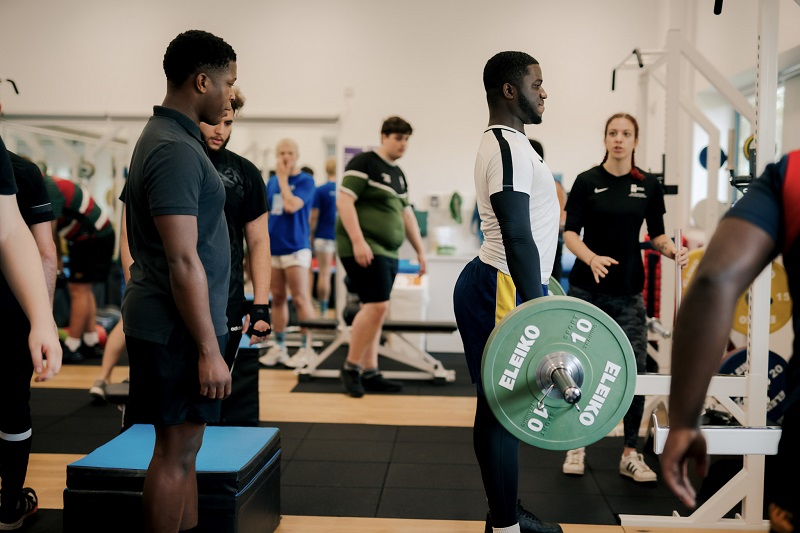
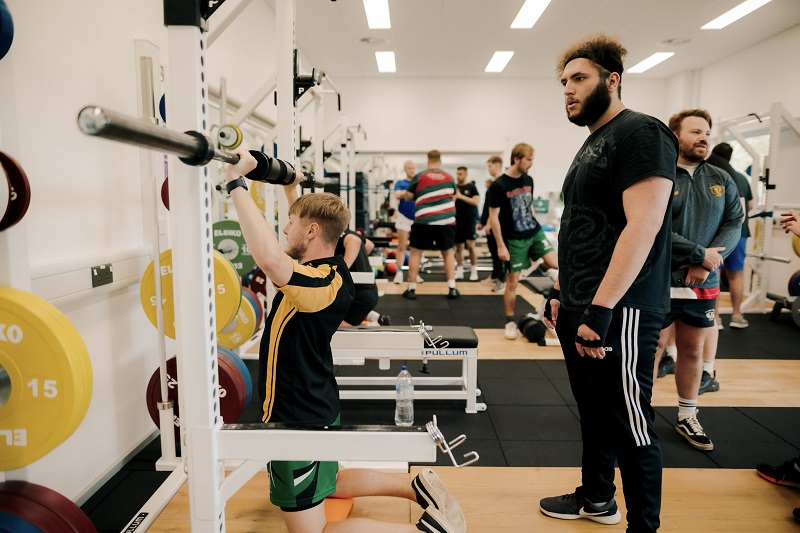
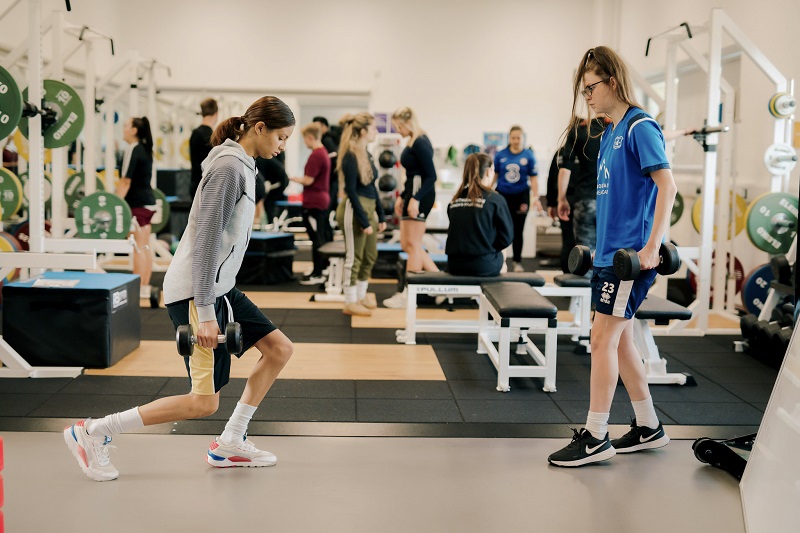
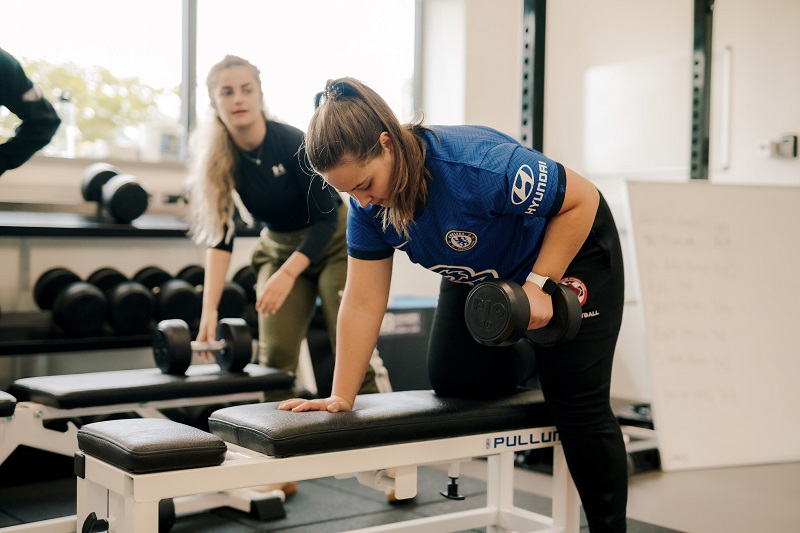
This sport rehabilitation degree is built upon the core competencies required and set by BASRaT which includes modules that develop your knowledge and skill in musculoskeletal injuries, athlete screening and injury prevention, manual therapies and strength and conditioning, as well as the underpinning sports-science disciplines modules such as physiology, anatomy, nutrition, psychological management of athletes and a research dissertation. In addition to developing your own business and entrepreneurialism skills, you will complete a minimum of 400 hours of work-based learning to enable you to apply your knowledge in real-world settings and gain the valuable experiences needed for future employment.
In Year 1 (Stage 1) you will develop skills across all core areas that underpin a graduate sport rehabilitator. You will develop the skills to conduct a range of injury screening tests; understand how to deliver exercise prescription to help reduce injury risk; develop knowledge of a breadth of musculoskeletal injuries and learn the skills to assess injured clients; learn a range of manual therapies that enable you to treat a range of musculoskeletal symptoms and conditions. Underpinned with extensive anatomy, physiology, academic and professional skills, by the end of this year you will be equipped and ready to embark on the work based learning modules outlined in Stage 2. You will also have the opportunity to gain an industry recognised pitch side trauma qualification.
In Year 2 (Stage 2) you will begin to build on the grounding of knowledge from Stage 1 and expand your understanding of exercise prescription, exploring the fundamental concepts of conditioning an athlete for physical and performance development and also in the context of rehabilitation in sports where athletes experience injury; you will expand your treatment toolkit developing competencies in the delivery of electro-physical modalities; compression, thermal and cryotherapies; you will develop the ability to assess and treat common injuries associated with the spine; you will gain understanding of the psychological stresses associated with injury, how these can influence successful rehab, and intervention to overcome these issues. You will experience your first work-based learning experiences with opportunities to undertake activities both externally and on campus, in addition to developing your own entrepreneurial skills to help you begin to develop a professional network and readiness for self-employment.
In Year 3 (Stage 3) you will focus on readying yourself for your postgraduate life and early career development. You will continue with work-based learning experiences and develop a body of evidence from these experiences to support you in future postgraduate or job applications; you will expand your knowledge of sport trauma and undergo teaching in readiness to complete a Royal College of Surgeons of Edinburgh approved pitch side trauma qualification. You will broaden your understanding of, and abilities to adapt exercise and rehabilitation strategies to wider population needs inclusive of para athletes, female athletes, elderly and paediatric clients. Finally you will develop and undertake your research dissertation with supervision from one of our supportive staff helping you to develop the academic skills to critically analyse and form a strong evidence-informed base to your practice.
Please note the modules shown here relate to the academic year 24/25. The modules relating to the academic year 25/26 will be available from June 2025.
A typical offer for the Sport Rehabilitation course would be:
We welcome applications from students with a mix of A levels and BTEC/Cambridge Technical qualifications.
In addition, you will need to have studied a sports coaching, physical education, sports science or science related subject at A Level or BTEC level 3 diploma. Relevant industry vocational qualifications would be considered where applicable.
You will be required to complete a Disclosure and Barring Service (DBS) check on admission in order to go out on work placement, which is a mandatory part of the course.
For more more information on how to make an application, please visit our How to Apply page.
If you are an International student and would like information on making an application, please see our How to Apply page.
Admission to this foundation sports rehabilitation course is normally:
We welcome applications from students with a mix of A levels and BTEC/Cambridge Technical qualifications.
However, we would also like to hear from you if you have professional or industry experience instead, a range of other qualifications or self-developed subject knowledge that relates to the course you wish to study.
All International and EU students applying for a course with the University of Northampton must meet the following minimum English language requirements:
For information regarding English language requirements at the University, please see our IELTS page.
Fees quoted relate to study in the Academic Year 24/25 only and may be subject to inflationary increases in future years.
Fees quoted relate to study in the Academic Year 23/24 only and may be subject to inflationary increases in future years.
For information on the scholarships available to you, please see our scholarships page.
For more information about possible funding options, please visit our Fees and Funding pages.
At the University of Northampton, everything we do, from funded trips to paid internships, is to give you everything you need to make a difference when you leave.
If you join this full time sport rehabilitation degree at the University of Northampton, you will receive a laptop when your course begins*. The laptops are built to a bespoke custom specification ideal for use in the seminar room, collaborative group work or studying at home.
Whatever your ambitions, we’re here to help you to achieve them. We’ll support you to identify the skills you’re learning during your sports rehabilitation course, find your strengths and secure practical experience so that when it comes to applying for jobs or further study you’ll feel confident in standing out from the crowd. We’ve created the Northampton Employment Promise because we are so confident that if you focus on your studies and complete one of our awards you’ll be highly employable by the time you graduate. Putting you in a great position to secure employment or continue your studies.
To check out the full list of perks, visit our Student Perks page or dedicated International Perks page.
*UK fee payers only (see Terms and Conditions for further details).
The Integrated Foundation Year (IFY) offers a new and exciting route into studying for a sports rehabilitation degree, attracting ambitious and driven students who are willing to learn and advance.
If you have non-standard qualifications or do not quite meet the admissions requirements for the sports rehab degree we can offer you a fantastic opportunity to study a four year programme which includes an Integrated Foundation Year. The Integrated Foundation Year will help you develop the theoretical/practical and academic skills you need, in order to successfully progress to the full award.
The University of Northampton’s four-year courses will enable you to successfully follow the degree pathway of your choice while gaining essential study skills. The foundation year of your chosen degree will be studied on a full-time basis and is aimed at supporting the transition to higher education. Years two, three and four are then studied as a standard degree programme.
The teaching strategy adopted for this course is designed to prepare you most effectively for the skills you will require in each module. All practice and clinical skill based modules are taught in specialist practical lab sessions, with practical classes of approximately 18 students per class. Theory based content is delivered through a mixture of face to face, student centred workshops (approx. 25-30 per class), with some additional pre / post lesson activities and online learning to support your knowledge development.
All our assessments have been developed with a few key points of focus:
Assessments include practicals, presentations, written essays, infographics, group tasks, reflective accounts, in class time constrained tests. The assessment structure is designed to give students from all preferences an opportunity to shine and achieve.
The job market for BASRaT accredited Sport Rehabilitators is a growing market. Our graduates have gone on to attain roles in the NHS; local authority community trusts; private healthcare; professional / semi-professional sports teams; stroke rehabilitation units; gyms; and continuation of their postgraduate education.
Open Days give you the best experience and insight to courses, people and facilities that interest you. Make your choice easier and come meet us.
Senior Lecturer in Sport Rehabilitation and Injury
Sport Rehabilitation and Conditioning BSc (Hons)
DiscoverSenior Lecturer in Sport Rehabilitation and Injury
Faculty of Arts, Science and Technology
DiscoverLecturer in Sport Rehabilitation and Conditioning
Faculty of Arts, Science and Technology
DiscoverLecturer in Sport Rehabilitation and Conditioning
Faculty of Arts, Science and Technology
DiscoverLecturer in Sport Rehabilitation and Conditioning
Faculty of Arts, Science and Technology
DiscoverThis Sports Rehabilitation Degree provides you with the skills necessary to secure employment in a range of sectors including sport rehabilitation, sport therapy, soft tissue therapy, sports teaching, and strength and conditioning in both sports and private practice settings. Graduate sports rehabilitators can also pursue careers within specialist military medical and rehabilitation centres.
You will develop excellent communication and analytical skills on this sport rehab degree, which will give you a great advantage when looking for employment. You also have the opportunity to continue your academic study, and have the option to progress onto our master’s programmes.
"The placement has been a huge benefit, as it has developed my communication and listening skills, enabling me to ensure I ask my patients the right questions to gather the appropriate information. Other skills I’ve developed include listening, organisation, time management, and practical application." - Jasmine Chang-Leng -
On the University of Northampton’s sports rehabilitation degree, you will have access to the Sports Zone at Waterside, which is home to a multi-use sports dome suitable for a variety of sports, including football, badminton and netball. The facilities include two sports performance labs, a pair of teaching rooms and changing rooms. In addition, there also are three outdoor multi-use games areas, and floodlit full-size all-weather sports pitch. The sports dome is used for teaching, research and recreational activities.
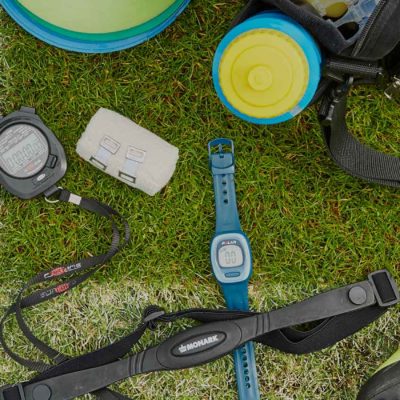
The Sport Coaching degree will develop your expertise in sport coaching, to understand participants and their sport and how to plan, deliver and review training programmes.
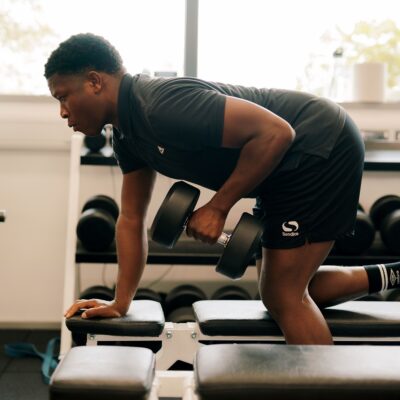
A pathway for careers in the field of sport and exercise psychology; you will cover all the core areas of psychology required for BPS accreditation.

